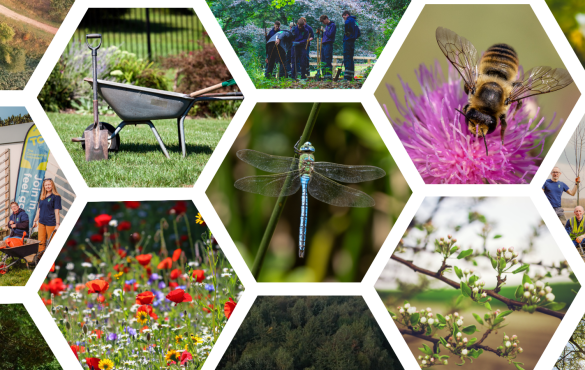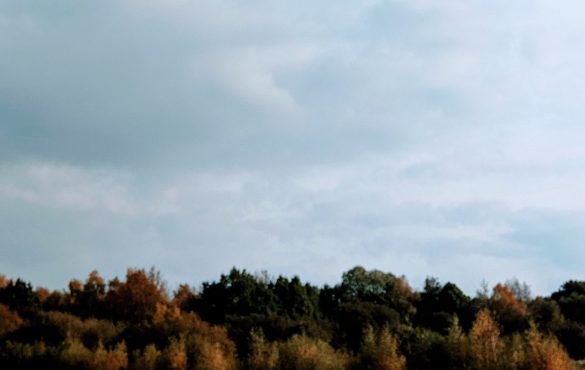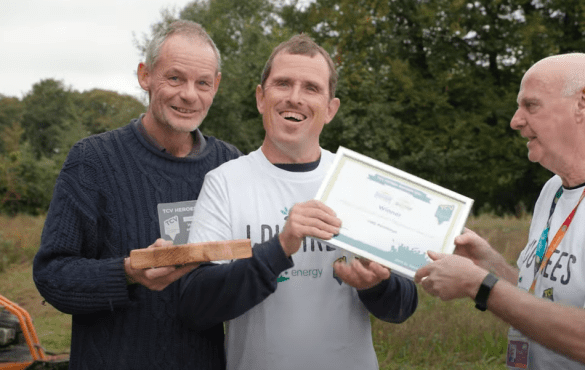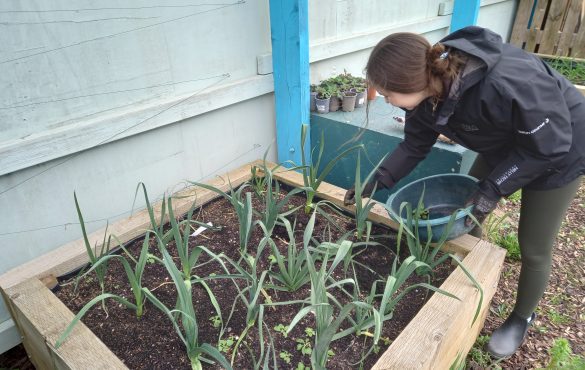Today is International Day of Girls and Women in Science day. The purpose of the day is to achieve full and equal access to and participation in science for women and girls.
To celebrate the day, we have asked Kirsty Crawford, Senior Project Officer at TCV Glasgow, to share the story of her journey to working in wildlife biology and conservation.
My path has taken many turns but I currently work as a Senior Project Officer in Glasgow, focused on Citizen Science projects. I’ve been in this role for three years, delivering a host of nature and community-based wildlife programmes across Central Scotland.
I didn’t always know I wanted to work in conservation, even while at school I had no idea about the range of jobs which could involve working in nature apart from maybe Park Ranger. At the time most of the biological science and outdoor jobs felt like they were geared up towards men.
My undergraduate was in Journalism and Creative Writing followed by a Performing Arts Diploma and years spent in London as a professional performer.
After a role at ZSL London Zoo as a wildlife presenter and an internship with the BBC Natural History Unit, I decided to apply for an MSc in Wildlife Biology and Conservation. I graduated in October 2020.
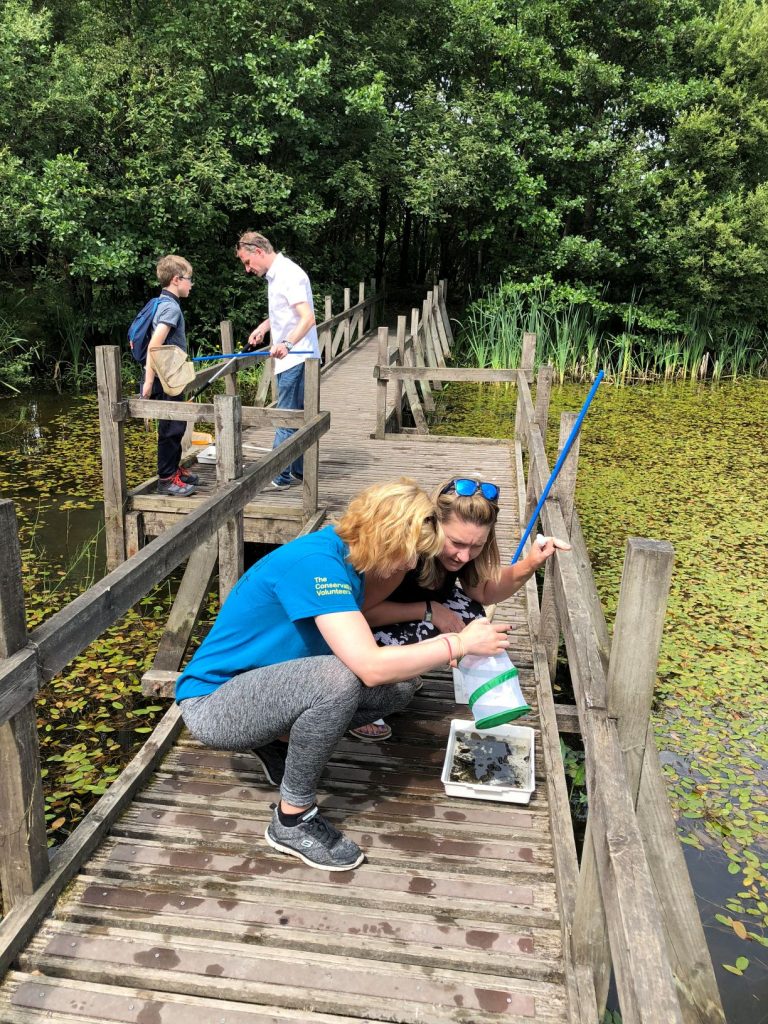
My entry to working with The Conservation Volunteers was through a brilliant traineeship scheme called Natural Talent UK. The aim of the programme was to increase expertise to protect our less well-known species and create awareness of the habitats that support them.
After a year of the traineeship in partnership with Buglife, combining skills in wildlife identification, project development, taxonomy and community engagement, a new role came up to deliver Citizen Science in Scotland.
Citizen Science can be defined simply as the involvement of volunteers in scientific research, an engaging and interesting challenge with many benefits.
Our TCV sessions are offered through our large-scale project Scotland Counts which has been running for over 12 years, as a means of substantial, thoughtful outreach with many diverse communities and members of the public.
Through this we deliver training courses, events, workshops, school sessions and design new surveys. Our flagship Citizen Science project is HogWatch Scotland, the first Scottish hedgehog conservation project which helps create new habitat, raise awareness, deliver educational programmes and carry out nocturnal work to survey this declining species.
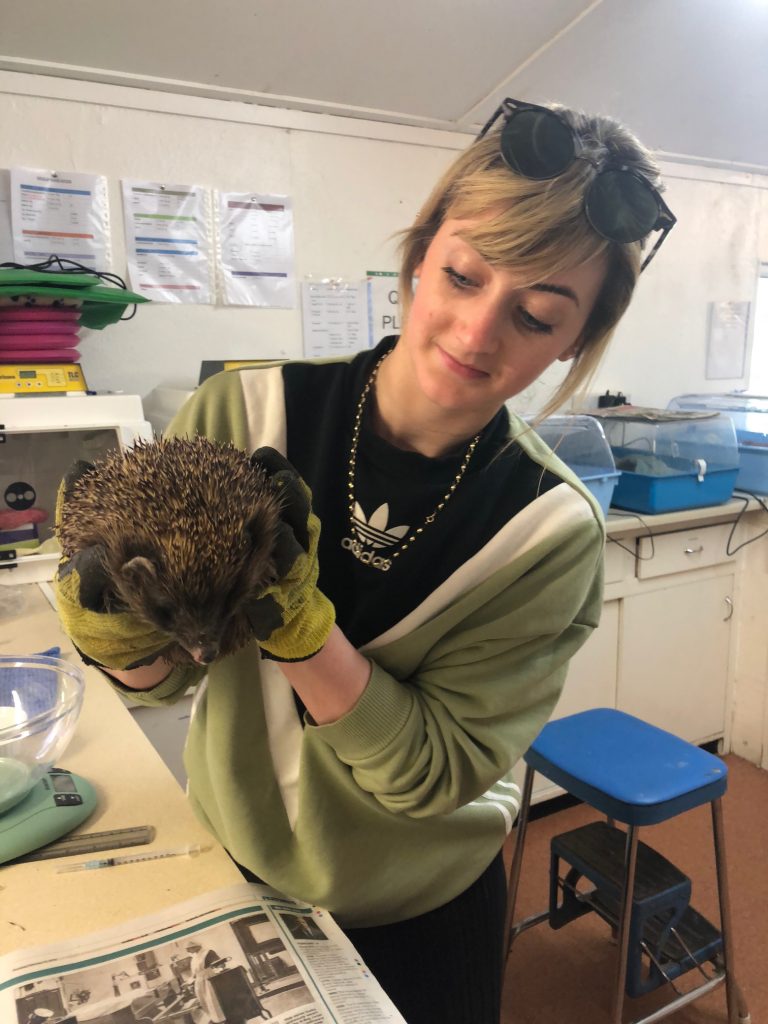
In partnership with Earthwatch Europe, I also lead on the Naturehood community wildlife project in Glasgow, encouraging local communities to rewild their spaces and take action for nature.
Together with Scottish Forestry, we created a brand-new citizen science survey focused on assessing the health of local woodlands. The Dead Good Deadwood Survey highlights the importance of dead and decaying wood as a vital habitat for many rare species. We host training and community events to give volunteers and local groups the skills to carry out monitoring.
Part of our project also provides outreach to BME and recently arrived familied in Scotland to offer access to the outdoors, excursions, training and a range of events linked to Scottish natural heritage.
At a community level Citizen Science has been shown to be an agent for empowering communities to act as environmental stewards, protecting and improving their local and global environment. This is especially important for the young people which we connect with.
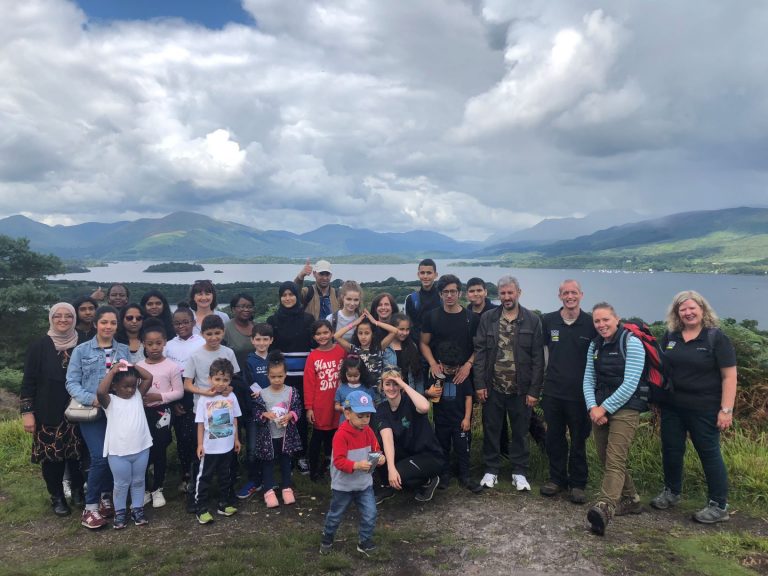
One of our projects this year, Pathways to STEM, has a focus on inspiring girls to consider conservation and environmental careers and STEM (Science, Technology, Engineering and Maths) subjects, in partnership with the Developing the Young Workforce campaign.
At secondary level we host dedicated workshops and discussion sessions for female pupils, including practical environmental sessions. More broadly, the project aims to connect young people with their local greenspaces and has worked with over 6,000 children.
Through Scotland Counts we try to reach outside the typical circle of people who are either already interested in wildlife or are studying a related subject, to allow us to target a new generation of citizen scientists.
I’m passionate about being ‘more than one thing’ in life and advocating for the impact of environmental education and the opportunities it can bring.

